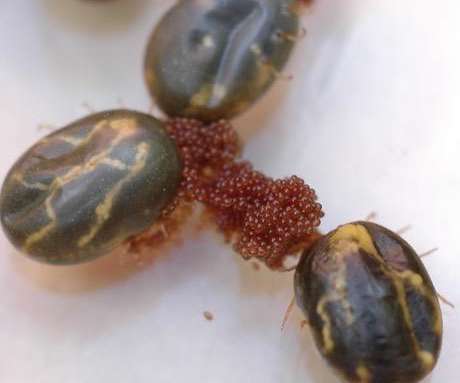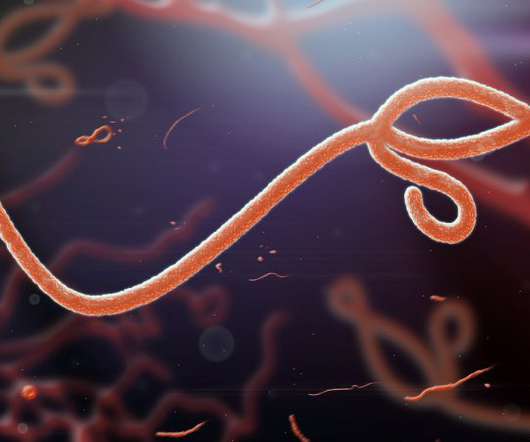Deeper insight into how tick spit suppresses cattle immunity
Scienmag
JANUARY 28, 2021
Credit: itabajara da Silva Vaz Jr) A tick saliva study reveals immune responses that could lead to better protection for cattle.

Scienmag
JANUARY 28, 2021
Credit: itabajara da Silva Vaz Jr) A tick saliva study reveals immune responses that could lead to better protection for cattle.

Delveinsight
AUGUST 6, 2020
ZyCoV-D is designed to introduce DNA that encodes for a viral protein into human cells. By ordering human cells to make the protein, ZyCoV-D could cause an immune response against the coronavirus. In a new study that is published in Science, the team displayed that one soluble receptor protein, sACE2.v2.4,
This site is protected by reCAPTCHA and the Google Privacy Policy and Terms of Service apply.

XTalks
JANUARY 20, 2021
Researchers at KU Leuven in Belgium have found a potential mechanism underlying irritable bowel syndrome (IBS) that involves activation of immune cells primed by past gastrointestinal infections. However, IBS patients do not have allergies to any given foods, nor any gastrointestinal conditions, such as celiac disease.

The Pharma Data
MARCH 13, 2022
That’s because the mutations that led to the variant’s emergence aren’t found in the regions of the virus that stimulates one type of cellular immune response, says an international research team from Johns Hopkins Medicine, in collaboration with the National Institute of Allergy and Infectious Diseases (NIAID) and ImmunoScape, a U.S.-Singapore

Delveinsight
AUGUST 27, 2020
Moderna’s COVID-19 vaccine triggers an immune response in older adults. The phase 1 study that is being run by the National Institute of Allergy and Infectious Diseases tests three dose levels of the vaccine, mRNA-1273, given in two injections a month apart in 120 adults.

pharmaphorum
JULY 7, 2022
When COVID-19 first emerged, scientists cautioned that developing an effective and safe vaccine could take longer than the commonly estimated figure of a year. Once the pandemic hit, Moderna teamed up with the US National Institute of Allergy and Infectious Diseases (NIAID) to co-develop the former’s vaccine. Identifying the threat.

Drug Discovery World
FEBRUARY 3, 2023
One of these candidates is VSV-SUDV, developed and tested by scientists at NIH’s National Institute of Allergy and Infectious Diseases in Hamilton, Montana. In the current studies, the investigators replaced the key EBOV protein in Ervebo with the comparable protein from SUDV.
Let's personalize your content